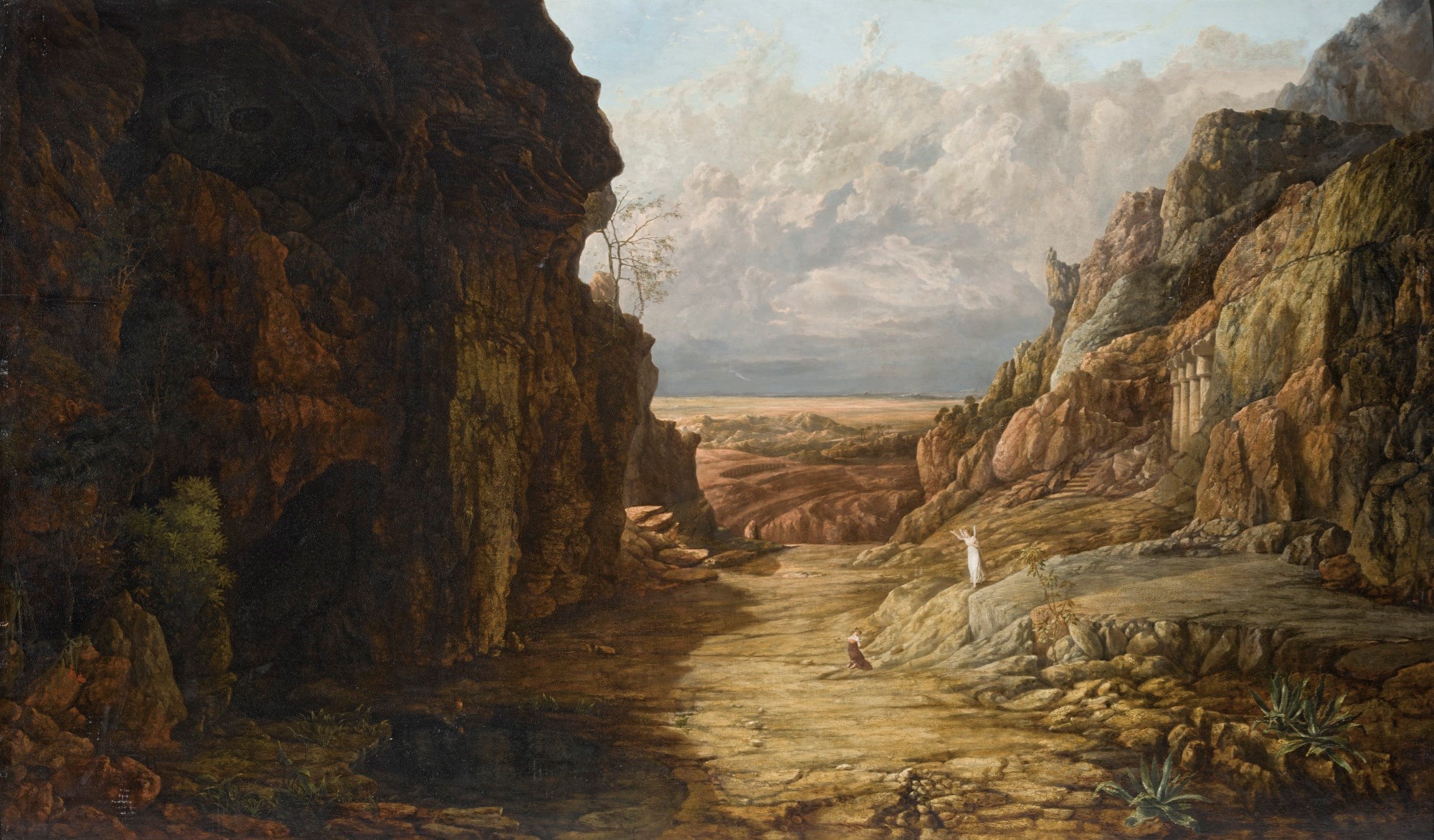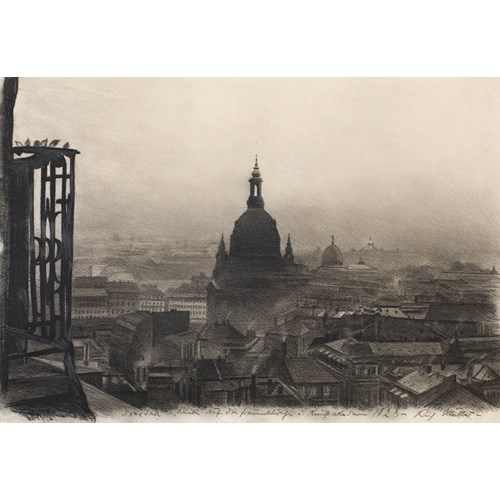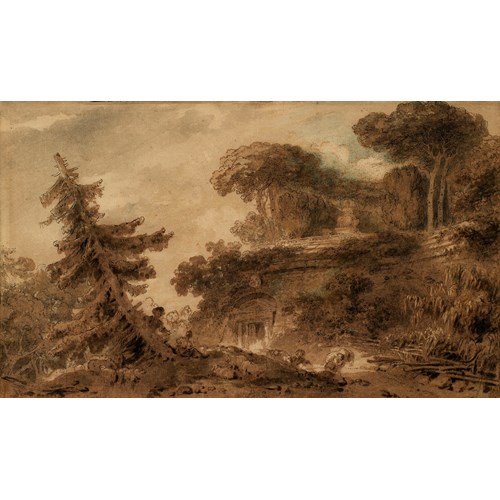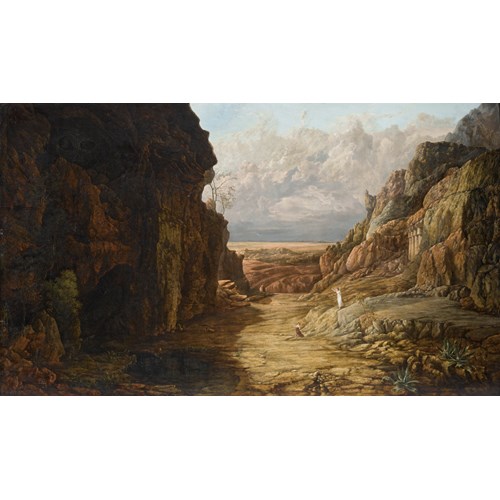Marketplace
Hagar in the desert
Dating from 1819, Hagar in the desert is the masterpiece of Francis Gold, a physician and artist from Bristol, and marks both the beginning and end of his artistic career.
Gold was an inspirational figure in the informal local sketching society, now known as “The Bristol School”, that included notable local artists such as Francis Danby, who described him as 'a man of great genius'. In 1820, the two artists decided to send large works to the British Institution in London, Danby was to send up his colossal painting The Upas Tree of Java, now in the V&A, and Gold Hagar in the Desert. But, for some reason, Gold lost heart, and the picture was never exhibited. This appears to be the end of Gold’s career as an artist, he left England and went to India as a surgeon in the service of the East India Company, where he died twelve years later.
This fantastical landscape with its rugged terrain and theatrical drama is in the same mode as the work of Gold’s contemporary, John Martin, and chimes with the beginning of the Regency taste for the sublime and the picturesque. Just as Martin’s epic exhibition pieces were inspired by the Northumberland landscape, so here the cliffs and craggs are taken from sketches Gold made around Bristol and the Avon Gorge. In 1801 Gold had travelled to Egypt and the temple set in the rocks on the right, is derived from drawings of the monuments he made there.
Gold was an inspirational figure in the informal local sketching society, now known as “The Bristol School”, that included notable local artists such as Francis Danby, who described him as 'a man of great genius'. In 1820, the two artists decided to send large works to the British Institution in London, Danby was to send up his colossal painting The Upas Tree of Java, now in the V&A, and Gold Hagar in the Desert. But, for some reason, Gold lost heart, and the picture was never exhibited. This appears to be the end of Gold’s career as an artist, he left England and went to India as a surgeon in the service of the East India Company, where he died twelve years later.
This fantastical landscape with its rugged terrain and theatrical drama is in the same mode as the work of Gold’s contemporary, John Martin, and chimes with the beginning of the Regency taste for the sublime and the picturesque. Just as Martin’s epic exhibition pieces were inspired by the Northumberland landscape, so here the cliffs and craggs are taken from sketches Gold made around Bristol and the Avon Gorge. In 1801 Gold had travelled to Egypt and the temple set in the rocks on the right, is derived from drawings of the monuments he made there.
Date: 1819
Period: 1750-1850, 19th century
Origin: UK
Literature: E. Adams, "Francis Danby: Varieties of Poetic Landscape", New Haven and London 1973, pp. 14, 16, 20, 21
F. Greenacre, "The Bristol School of Artists: Francis Danby and Painting in Bristol 1810-1840", p 47
F. Greenacre, "Francis Danby 1793 - 1861", Tate Gallery in association with the City of Bristol Museum and Art Gallery, 1988 (London, Tate Gallery Publications), pp. 17, 38.
More artworks from the Gallery






